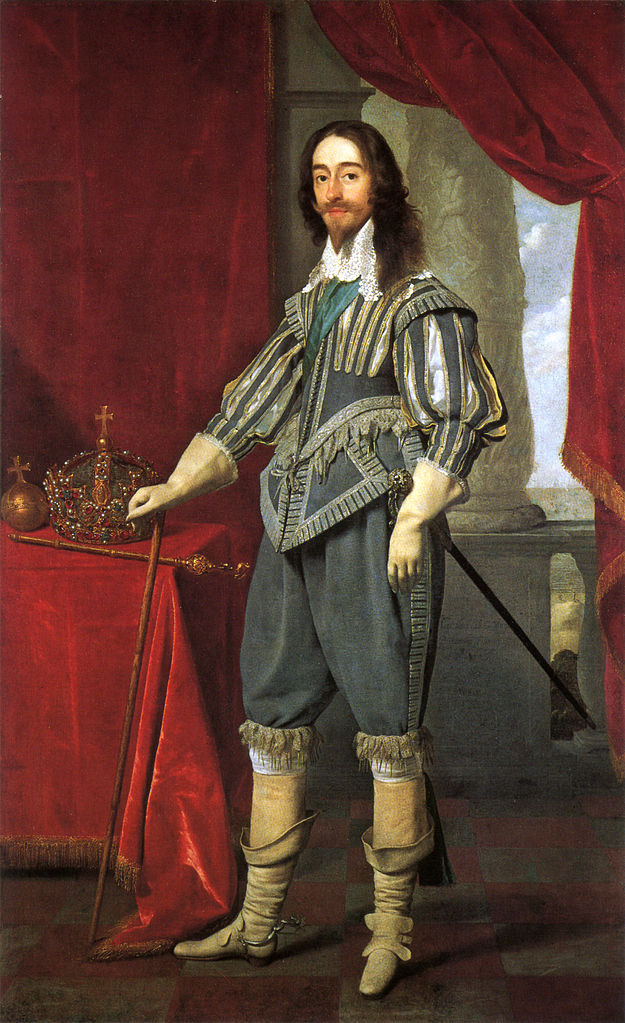Charles I
Charles I ascended to the throne in 1625 following the death of his father, James VI. His reign was marked by religious and political strife which culminated in the English Civil War. Charles favoured a High Anglican form of worship, which alienated the Puritan population in England and exacerbated tensions in Scotland where Presbyterianism was widespread. His belief in the divine right of kings and his attempts to govern without Parliament led to further unrest. Financial pressures and opposition to his policies resulted in multiple clashes with Parliament, eventually triggering the Civil War in 1642. The conflict ended in defeat for Charles, who was captured, tried, and executed in 1649, leading to the temporary establishment of the Commonwealth which extended over England, Scotland, and Ireland, effectively abolishing monarchy across the three nations and making Charles I the only British monarch to be formally tried and executed by his own subjects.
This event is also available in the following timelines:
